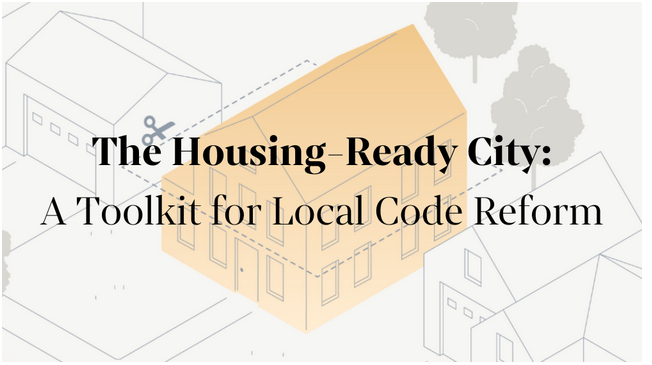Housing in North Tahoe is tough. Prices are high, options are few, and many people who work here can’t afford to live here. The problem seems overwhelming, but local governments already have the power to take action—they just need the right tools.
That’s why Strong Towns just released The Housing-Ready City: A Toolkit for Local Code Reform. It lays out six simple, practical reforms that local officials can implement right now to help get more housing built without waiting for state or federal action.
What’s in the Toolkit?
This guide focuses on fixing local zoning codes and regulations that make it harder to build affordable, walkable, and financially strong neighborhoods. The six key reforms are:
✅ Allow Single-Family Home Conversions – Let people turn their homes into duplexes or triplexes.
🏡 Permit Backyard Cottages – Legalize small additional homes (ADUs) in every residential area.
🏘 Legalize Starter Homes – Make it possible to build smaller, more affordable homes.
📏 Eliminate Minimum Lot Sizes – Allow more housing in existing neighborhoods without artificial barriers.
🚗 End Parking Mandates for Housing – Stop requiring costly, unnecessary parking that makes housing more expensive.
📑 Streamline the Approval Process – Cut red tape to speed up and lower the cost of new housing.
Why This Matters for North Tahoe
We don’t have to start from scratch. Some of these ideas are already being discussed here—like parking reform in Kings Beach and flexible zoning in the Tahoe Basin Area Plan. This toolkit shows how other cities have implemented these changes successfully, and how North Tahoe can do the same.
💡 Download the full toolkit here:
👉 www.strongtowns.org/housingready
Let’s Talk Solutions
This isn’t just about policy—it’s about making sure the people who work, live, and love this place can actually afford to stay here. What steps should North Tahoe take first? What local barriers are making housing harder to build?
💬 Join the conversation in the comments
📢 Share this with local leaders and neighbors
🚀 Let’s take action at the local level—because we don’t have to wait for someone else to fix this.


Leave a Reply